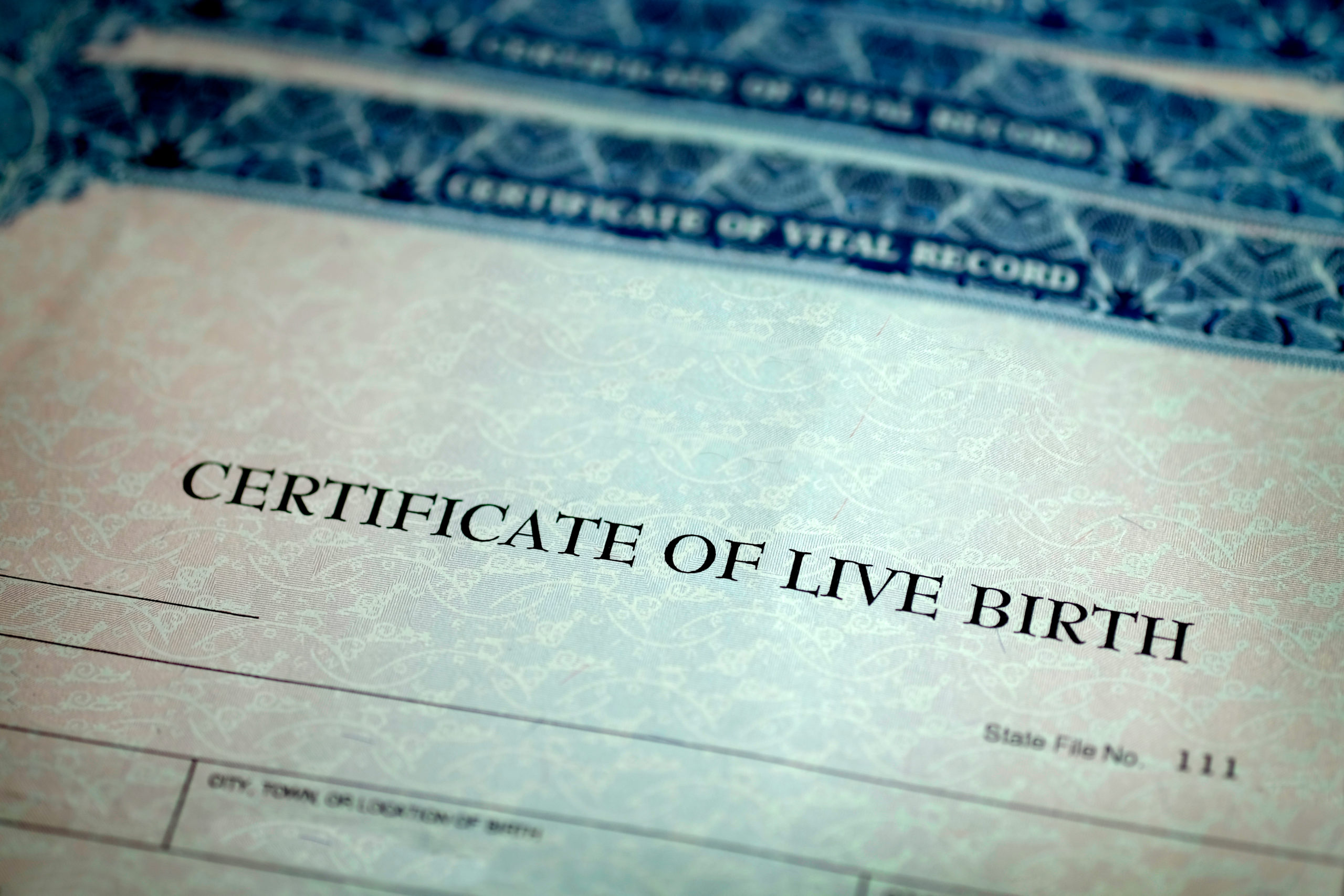
A Complete Guide to US Birth Certificates: Everything You Need to Know
Key Takeaways:
- Birth certificates serve as legal proof of identity and age and are required for various legal and everyday purposes.
- Each state has its own regulations and requirements for obtaining a birth certificate.
- The process of obtaining a birth certificate involves identifying the issuing authority, gathering required documents, completing the application, paying the fee, submitting the application, and waiting for processing.
- Common mistakes to avoid when applying for a birth certificate include providing incomplete or inaccurate information, insufficient documentation, incorrect fees, and failure to follow application instructions.
- If you can’t find your original birth certificate, you can still obtain a certified copy from the state or county where you were born.
- Birth certificates contain personal data such as full name at birth, date and place of birth, gender, and parents’ names and information.
- If there are errors on a birth certificate, they can be corrected by following the specific instructions of the issuing authority in your state.
- For adopted individuals, birth certificates may have the birth parent’s information and access to original birth certificates varies by state.
- Birth certificates do not expire, but certified copies obtained for specific purposes may have expiration dates imposed by the requesting authority.
In the United States, birth certificates play a crucial role in establishing a person’s identity and are required for a variety of legal and everyday purposes. Whether you need a birth certificate to obtain a passport, enroll in school, or apply for government benefits, understanding the process of obtaining and using birth certificates is essential. This comprehensive guide will provide you with all the information you need to navigate the world of US birth certificates.
Why Birth Certificates are Important
The Legal Significance of Birth Certificates
Birth certificates serve as legal proof of a person’s identity and age. They are issued by the state or county where the birth occurred and are considered official documents. Birth certificates are a fundamental component of the legal system, used to establish citizenship, claim inheritance, and prove familial relationships. They are also required for obtaining various identification documents, such as driver’s licenses and social security cards.
Uses of Birth Certificates in Everyday Life
Birth certificates have everyday applications that go beyond legal requirements. They are often necessary during the registration process for school enrollment, sports leagues, and summer camps. Birth certificates may also be required when applying for marriage licenses or when changing one’s name. Additionally, birth certificates are essential for accessing government benefits, such as social security and Medicaid.
How Birth Certificates are Different in Every State
While birth certificates serve a universal purpose across the United States, the specific details and requirements for obtaining them can vary from state to state. Each state has its own vital records office responsible for issuing birth certificates and establishing the criteria for eligibility. It’s important to familiarize yourself with your state’s specific regulations and requirements when applying for a birth certificate.
The Process of Obtaining a Birth Certificate
Step-by-Step Guide: How to Obtain a Birth Certificate
Obtaining a birth certificate involves several steps, which may vary slightly depending on the state. Here is a general guide to help you through the process:
1. Identify the issuing authority: Determine which state or county office is responsible for issuing birth certificates in the birth jurisdiction.
2. Gather required documents: Collect the necessary documents, such as identification, proof of relationship, and proof of eligibility.
3. Complete the application: Fill out the birth certificate application form, ensuring accuracy and completeness.
4. Pay the fee: Birth certificates often require payment of a processing fee, which can vary by state.
5. Submit the application: Submit the completed application and accompanying documents to the appropriate office either in person, by mail, or online.
6. Await processing: The processing time will vary depending on the issuing authority and the method of application.
7. Receive the birth certificate: Once processed, the birth certificate will be issued and can be collected in person or delivered by mail.
Common Mistakes to Avoid When Applying for a Birth Certificate
While applying for a birth certificate may seem straightforward, there are common mistakes that can delay or hinder the process. Here are some pitfalls to avoid:
1. Incomplete or inaccurate information: Ensure that all information provided on the application is correct and complete to prevent delays or rejection.
2. Insufficient documentation: Make sure you have all the required supporting documents, such as identification and proof of relationship, to avoid complications.
3. Incorrect fees: Verify the exact fee amount and acceptable payment methods to avoid delays in processing.
4. Failure to follow application instructions: Read and follow the application instructions carefully to ensure all requirements are met.
5. Ignoring processing times: Be aware of the estimated processing time for your application and plan accordingly, allowing for any potential delays.
What to Do If You Can’t Find Your Original Birth Certificate
If you are unable to locate your original birth certificate, don’t worry. You can still obtain a certified copy from the state or county where you were born. Follow the same steps outlined for obtaining a birth certificate, providing any available information about your birth and personal details. It’s important to note that some states may require additional documentation, such as a sworn statement or affidavits from individuals with personal knowledge of your birth.
Understanding the Information on a Birth Certificate
What Personal Data is Included on a Birth Certificate
Birth certificates contain vital information about an individual’s birth, including:
– Full name at birth
– Date and place of birth
– Gender
– Parent’s names
– Parent’s information, such as date of birth and place of birth
This information is essential for establishing legal identity and determining lineage. It is crucial to ensure the accuracy of the information on a birth certificate as errors can have significant implications.
How to Correct Errors on a Birth Certificate
If you discover an error on your birth certificate, it’s important to rectify it as soon as possible. The process for correcting errors varies by state, but generally involves submitting a correction application and supporting documentation. Common errors that can occur include misspellings of names, incorrect birth dates, or omissions of parent’s information. Contact the issuing authority in your state for specific instructions on how to correct errors on your birth certificate.
Birth Certificates and Adopted Individuals
For individuals who have been adopted, birth certificates take on a unique significance. The original birth certificate, also known as the “pre-adoption birth certificate,” may contain the birth parent’s information. Depending on state laws and adoption regulations, the original birth certificate may be sealed and a new birth certificate issued with the adoptive parent’s information. Access to original birth certificates by adoptees varies by state, with some states allowing access upon reaching a certain age or through specific legal procedures.
Additional Facts and Interesting Tidbits about Birth Certificates
Unusual Birth Certificate Stories from Around the US
Beyond the routine issuance of birth certificates, there have been intriguing and unusual stories surrounding these documents. In some instances, unusual or creative names chosen by parents have garnered attention. Additionally, rare occurrences, such as twins born in different years, have sparked media interest. These extraordinary stories demonstrate the unique and diverse nature of birth certificates and the individuals they represent.
The History and Evolution of Birth Certificates
Birth certificates have a rich history that parallels the development of vital records systems. While birth registration was not commonplace in the early years of the United States, gradual changes in legislation and societal norms led to the establishment of more reliable systems. The standardization of birth certificates and the inclusion of essential information, such as parentage, evolved over time to ensure accuracy and consistency.
Do Birth Certificates Expire?
Birth certificates are permanent documents and do not expire. They serve as a lifetime record of a person’s birth and do not require renewal. However, it is essential to keep the birth certificate in a safe place and protect it from damage or loss. Certified copies of birth certificates obtained for specific purposes, such as passport applications, may have expiration dates imposed by the requesting authority. It is recommended to obtain new certified copies as needed to ensure validity.
Now armed with a comprehensive understanding of US birth certificates, you can confidently navigate the process of obtaining, using, and understanding these important documents. Birth certificates are not merely pieces of paper; they hold the key to a person’s legal identity and play a vital role in everyday life.
FAQ
Question: What is the purpose of a birth certificate?
Answer: A birth certificate serves as legal proof of a person’s identity and age. It is required for various legal and everyday purposes such as obtaining a passport, enrolling in school, and applying for government benefits.
Question: How do I obtain a birth certificate?
Answer: To obtain a birth certificate, you need to identify the issuing authority, gather the required documents, complete the application, pay the fee, submit the application, and wait for processing. The specific process may vary depending on the state.
Question: Are birth certificates the same in every state?
Answer: While birth certificates serve a universal purpose, the details and requirements for obtaining them can vary from state to state. Each state has its own vital records office responsible for issuing birth certificates and establishing eligibility criteria.
Question: What should I do if I can’t find my original birth certificate?
Answer: If you are unable to find your original birth certificate, you can still obtain a certified copy from the state or county where you were born. This involves providing any available information about your birth and personal details. Some states may require additional documentation.
Question: What information is included on a birth certificate?
Answer: Birth certificates typically include the full name at birth, date and place of birth, gender, and parents’ names and information. This information is vital for establishing legal identity and determining familial relationships.
Question: How can I correct errors on my birth certificate?
Answer: If you discover an error on your birth certificate, the process for correction varies by state. Generally, it involves submitting a correction application and supporting documentation. Examples of errors include misspellings of names and incorrect birth dates.
Question: Do birth certificates expire?
Answer: Birth certificates do not expire as they serve as permanent records of a person’s birth. However, certified copies obtained for specific purposes, such as passport applications, may have expiration dates imposed by the requesting authority. It is recommended to obtain new certified copies as needed.
Question: How does adoption affect birth certificates?
Answer: For individuals who have been adopted, birth certificates hold unique significance. The original birth certificate may contain the birth parent’s information. Depending on state laws and adoption regulations, the original birth certificate may be sealed and a new birth certificate issued with the adoptive parent’s information. Access to original birth certificates by adoptees varies by state.
Useful Resources:
- Centers for Disease Control and Prevention (CDC) – Where to Write for Vital Records
- USA.gov – Replace Your Vital Documents
- USA.gov – Vital Records and Consumer Information
- U.S. Census Bureau – Birth Data and Statistics
- National Academy of Sciences – Improving Birth Registration and Vital Statistics Globally: Guidelines for Collaboration with the Health Sector
- National Archives – Birth Records
- VitalChek – Official Birth Certificates Online
- World Health Organization (WHO) – Birth Certificates




